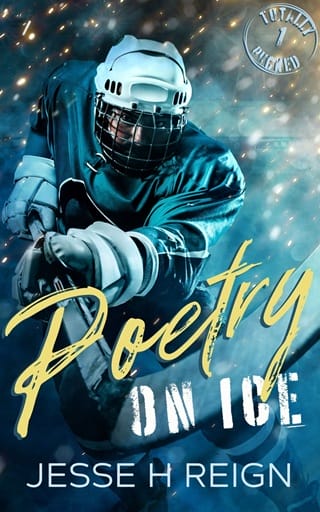3. The Child of the Train
Weiwei steps down onto the platform into a sudden hush. There hadn't been a discussion—the Captain had simply nodded to her, and the passengers and crew gathered by the windows had parted to let her through. She feels very small, and the expectant silence of the crowd makes the exhibition hall seem impossibly huge, far bigger than any building she has ever been inside. Rows of balconies run along the walls. Mechanical contraptions the size of trees stand high up on plinths; a statue of the Russian Emperor on his horse, many times larger than life, frozen as though galloping into war; and row upon row of tall glass cases stretch out as far as she can see. In some there are lifeless creatures, eyes unseeing. In some there are things that climb or crawl or fly, bumping furred bodies against the glass. This is what the Exhibition is saying—Look at our achievements, look at what we have made. Then look at what we are not.
She reaches for the train, places her hand on its warm, overgrown side; feels its power, beating like a pulse, as if it is as alive as those creatures trapped behind glass. The spectators can feel it too, she thinks, as a wave of murmurs fills the hall, and she is aware of an uneasy, mistrustful attention; a thousand pairs of eyes, all fixed upon her.
But here come the Company representatives, hurrying along the platform, hands clenched by their sides. Men in dark suits like the Crows; men just as formless and nameless, molded by the Company into its own image. Behind them come the soldiers, the insignia of the Company on their uniforms and rifles in their hands. Countless soldiers, as if the military might of an entire nation were pouring onto the exhibition floor, their boots shaking the ground. They place themselves between the spectators and the train. They raise their rifles to their shoulders. And Weiwei sees, in a glimpse of one possible future, the train tamed by guns and rules and timetables. She sees order brought about again, the Trans-Siberia Company triumphant, the old century folding neatly into the new. She sees the men in front of her, unshakeable in their self-belief.
"Where is the Captain?" It is the Chairman of the Board of the Trans-Siberia Company, tall and gray-bearded and bristling with righteous fury, though the soldiers behind him make him seem smaller, more diminished than Weiwei remembers. "We must speak with her immediately. And our consultants, where are they?"
Gone,she wants to say. Turned into pebbles and twigs and bone, and there is nothing you can do about it. But before she can speak, a flash of blue catches her eye and she crouches down, ignoring the thump of boots and metal, the gasp from the crowd, the sudden shout from Alexei behind her. There are rifles, readied, trained right at her—she knows this, but she cannot seem to take her eyes from where a small patch of brilliant-blue lichen is growing, silver veins among the overlapping scales. When she touches it, with the very tips of her fingers, she feels—
—Here. A presence. A beating heart. Here, and here, and here. A thread stretching back toward the Wastelands, back toward Elena—Here—and pulling toward something new. The earth alive with anticipation, with change. It makes her feel as if there are sparks bouncing from her skin.
"Miss Zhang, we asked you a question," says the Chairman of the Board in an outraged tone. Two of the soldiers step closer; close enough for her to smell the metallic tang of their guns, the polish on their heavy boots, but then the Professor is beside her, raising her up gently and turning his back on the soldiers and the Chairman of the Board. "You appear to be worrying these gentlemen," he murmurs. "But there is something I think you should see." He passes a sheet of paper to her, an odd expression on his face.
This is the last testament of Artemis,she reads, before the words begin to move and uncoil in front of her, like the thin threads that snaked through the train.
"An interesting phenomenon, is it not?" The Professor peers at it over his glasses, and Weiwei watches, fascinated, as the spirals of the Cyrillic letters unfold themselves and weave their way toward the edges of the paper before spilling onto the floor, onto the scales of lichen, turning them a deeper, inky blue.
"Are you listening? Do you have any idea—" But the Chairman's words are lost among a growing rumble of sound from the crowd. Weiwei follows the fingers pointing upward, the raised heads and wide eyes and open mouths, and she sees the glass changing. A ripple passes through it, like water, like the silvery-blue scales of lichen—like ink, and there are words forming within it, moving across the walls of the palace, across the ceiling, and with the words comes a swell of confusion and panic and fear. Some of the spectators turn and run, pushing past anyone in their way to reach the doors, causing a swell that makes her fear that the fragile control of the crowd is about to break, that the railings holding them back are about to come crashing down. But the railings hold, though some in the crowd weep, some scream, some faint right away.
And some simply stand, and read.
I, Artemis, set down these words, for whoever may find them… Though my voice is small, against the might of the Trans-Siberia Company, I hope that one day it will be heard and that you, my loyal readers, will know of the greed… of the endless arrogance… of the lies the Company has told you.
"Slander!" shrieks the Chairman of the Board, as the other Company men are shouting that it is sabotage, it is nothing but a trick. His face crimson, the Chairman dives for the paper that Weiwei still holds, and rips it into tiny pieces, letting them fall and stamping them underfoot.
"It's too late," she says, calmly. "The words are already gone, they are all up there, for everyone to see."
… the glassmaker Anton Ivanovich Fyodorov risked his own reputation and livelihood… finding proof that in the Company's determination to increase crossings and revenue… they ignored the evidence of changes to the Wastelands caused by the train itself, and the danger to…
She turns away from the furious Company men to see Marya Antonovna stepping down from the train, Suzuki beside her. There are tears in her eyes and a smile on her lips. The Professor bows to her. "It is little enough justice," he says.
"No," says Marya. "It is a lot."
It is the Company's greed that harmed the train, that harmed the landscape itself. This is the truth. I do not presume to understand the meaning of the Wastelands… or to propose, indeed, that there is meaning to be found…
The crowd has quietened. All the passengers from the train have stepped down onto the platform. All have their heads raised to the words in the glass. They are all waiting. Like the glass and the iron, the vines and the flowers and the bark. Watching. Waiting.
… but the Society has theorized and argued for long enough. The doors are open. The end of the Company is here. It is time to see what has been kept hidden.
Weiwei feels the hum in her bones. She feels the train and the lichen and the glass. She feels change thundering through the exhibition hall. Rust prickles along the metallic bodies of the looms and weapons and presses, then ghostly lichen blooms and vanishes, pale threads reach into machinery and clockwork to set them running. Glass cases shatter into droplets of water, rising again into fountains where birds and insects drink in their freedom. The Emperor's horse picks up its hooves and gallops out of its palace, leaving the Emperor cracked in pieces on the ground.
The Chairman of the Board screams at the soldiers to fire, but they have already lowered their rifles. They are falling back, leaving the Company men exposed to the growing jeers of the crowd, to the pieces of food and rubbish thrown down at them from the galleries just as flashes of light herald the arrival of the newspaper men and their photographic apparatus.
Weiwei turns back to where the Captain is stepping down from the doorway behind her. "They weren't just helping Elena, at the Wall. The water and the soil—they were helping us too. They want us to go on."
The Captain hesitates. Then she gives the smallest of nods.
Weiwei looks at the faces of the passengers. At the spectators, as hushed now as if she were a priest performing a rite on sacred ground.
The soldiers have left the exhibition hall. The Company men have been swallowed up by the crowd.
She looks back toward the train, seeing it fully for the first time; wild and overgrown, part forest, part mountain, part machine. Full of the crossings it has made. Full of the crossings yet to come.
She hears its engine roar into life.
 Fullepub
Fullepub 



